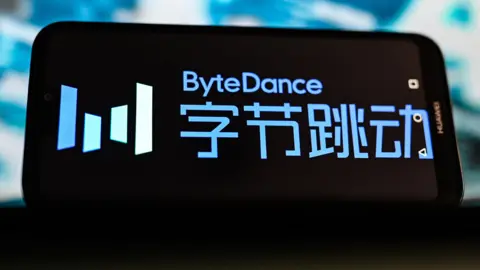TikTok owner sacks intern for sabotaging AI project
 Getty Images
Getty ImagesTikTok owner, ByteDance, says it has sacked an intern for "maliciously interfering" with the training of one of its artificial intelligence (AI) models.
But the firm rejected claims about the extent of the damage caused by the unnamed individual, saying they "contain some exaggerations and inaccuracies".
It comes after reports about the incident spread over the weekend on social media.
The Chinese technology giant's Doubao ChatGPT-like generative AI model is the country's most popular AI chatbot.
"The individual was an intern with the [advertising] technology team and has no experience with the AI Lab," ByteDance said in a statement.
"Their social media profile and some media reports contain inaccuracies."
Its commercial online operations, including its large language AI models, were unaffected by the intern's actions, the company added.
ByteDance also denied reports that the incident caused more than $10m (£7.7m) of damage by disrupting an AI training system made up of thousands of powerful graphics processing units (GPU).
As well as firing the person in August, ByteDance said it had informed the intern's university and industry bodies about the incident.
ByteDance operates some of the world's most popular social media apps, including TikTok and its Chinese-equivalent Douyin.
It is widely seen as a leader when it comes to algorithm development due to how appealing its apps are to users.
Like many of its peers in China and around the world, the social media giant is investing heavily in AI.
It uses the technology to power its Doubao chatbot as well as many other applications, including a text-to-video tool called Jimeng.
